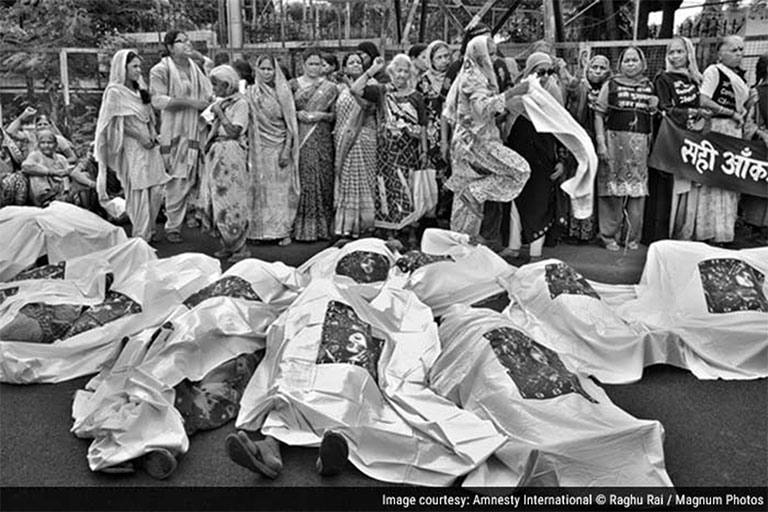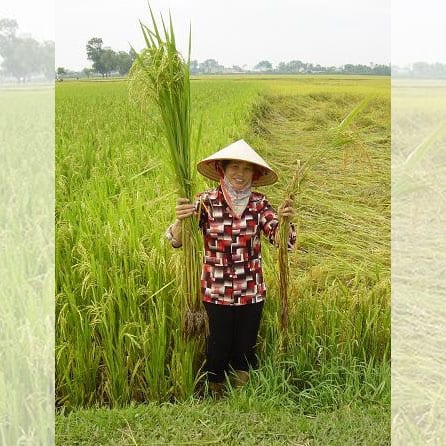EU Commission’s (EUC) recent approval of the $130 billion Dow-DuPont merger is a blatant blow to the people’s fight against mergers between the big six agrochemical companies. The approval, hinged on the divestiture of major parts of DuPont’s global pesticide business and does not take into account the sociopolitical dimension of the merger, is simply unacceptable. Both headquartered at the USA, Dow and DuPont have a strong portfolio of herbicides and insecticides, and have intellectual property rights on genetically engineered (GE) seeds and traits.
Commissioner Margrethe Vestager’s words succinctly reflect the EUC’s position:
The approval is deplorable as it could expedite other pending mergers and thus, put 59% of global commercial seed and 64% of pesticide supply into the hands of just three companies: Bayer-Monsanto, ChemChina-Syngenta and Dow-Dupont. Wielding greater political power, these giants could shape policies that are disadvantageous to consumers and farmers. As Plumer (2016) puts it:
Mergers could aggravate market domination that would further expand agrochemical use and the GE crop-pesticide (e.g. Roundup-Ready crops and glyphosate) bundle. The pressure on State Governments to adopt policies that entrench chemical-intensive farming and undermine sustainable agriculture may continue. This is far from what PANAP and UN envision the global agriculture to be in the near future.
While Com. Vestager considers that “Pesticides are products that matter – to farmers, consumers and the environment…” the UNSRs on the right to food, and on the implications for human rights of the environmentally sound management and disposal of hazardous substances and wastes, Hilal Elver and Baskut Tuncak respectively, think otherwise. Taking on PANAP’s perspective, the UNSRs’ report to the UN Human Rights Council’s 34th session states that:
The 2017 report gives a yearly estimate of 200,000 acute poisoning deaths due to pesticides, 99% of which occur in developing countries. It also details how the excessive use and misuse of pesticides contaminate ecosystems, resulting to the loss of biodiversity, death of beneficial insects, and reduction of the nutritional value of food.
UNSRs Elver and Tuncak’s report redirects the global farming strategy towards agroecology. It also strengthens the move to make corporations accountable and pay for the damages their products have wrought on people and the environment. The recommendations to have a (i) legally binding global treaty that regulates hazardous pesticides throughout their life cycle, taking into account human rights principles; and to (ii) place strict liability on pesticide producers, are uplifting.
Dow for one still has to address the case of the Bhopal tragedy victims 16 years after it acquired Union Carbide. It is high time that these agrochemical giants face the consequences of their inaction on the people’s call for justice. Now is payback time.1,2,3,4


Abandoned to poor health care and paltry pay-outs, survivors have fought for three decades for the corporations behind the disaster to be brought to justice in one of the longest people’s struggles in India. (Source: http://www.ndtv.com/photos/news/bhopal-gas-tragedy-then-and-now-18913#photo-243292) Watch the Bhopal tragedy here.
With the raised awareness of the consumers, the support of the UN, and the continuing groundwork for safe food and healthy environment, such mergers will only fuel the clamor to stop pesticide use in agriculture and will further boost the adoption of safe, environment and people-friendly farming.
#
Sign up for campaign updates here.
For more information: Milagros S. Serrana, Pesticide Programme Science Officer, PANAP mila.serrana@panap.net








Discussion about this post